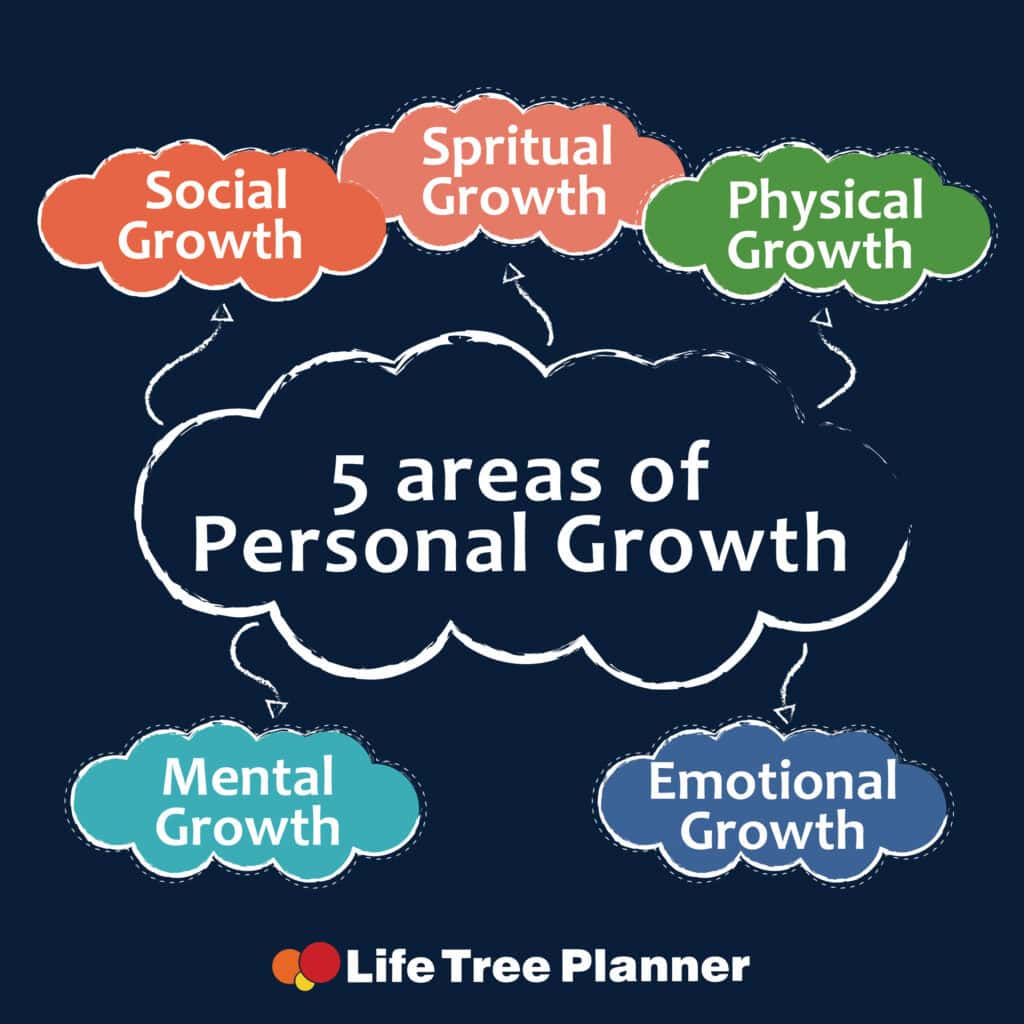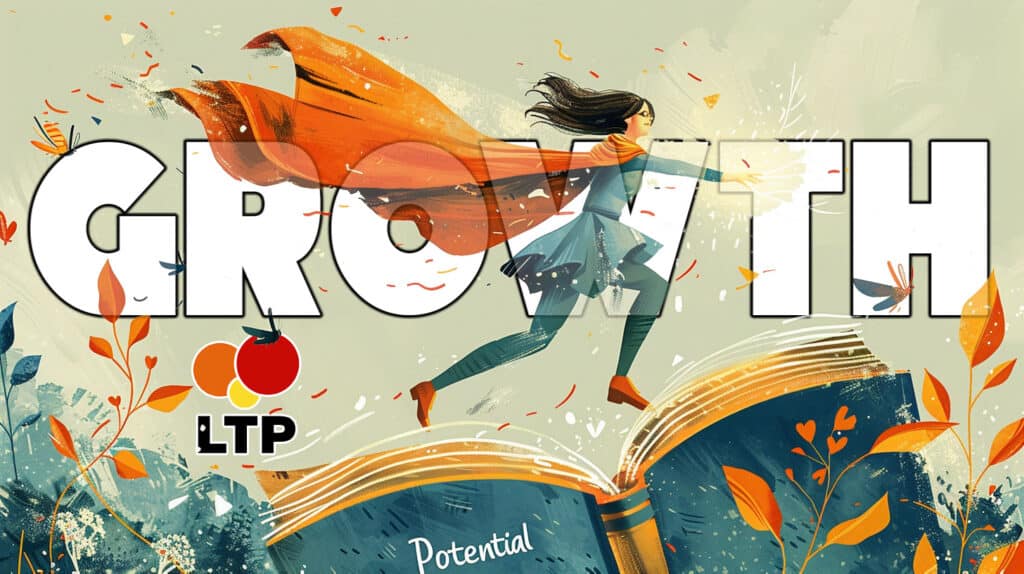
Are you feeling stuck in your personal development journey, unsure of where to focus your energy? You’re not alone; many individuals grapple with similar feelings. Understanding the key areas of personal growth is essential for transforming your life.
As you start this journey, you will be the hero, facing challenges and seizing opportunities to improve.
In this article, we will explore 5 crucial areas of personal growth: emotional, mental, physical, social, and spiritual growth. By implementing effective strategies in these areas, you can create a more fulfilling life.
Take the first step towards your growth by diving deeper into these concepts.
As you navigate personal development, you will unlock a path to inner peace, stronger relationships, and a more balanced life.
Here are 5 areas of personal growth:
- Emotional Growth: Developing emotional intelligence and resilience for better relationships.
- Mental Growth: Expanding knowledge and critical thinking through lifelong learning.
- Physical Growth: Maintaining health via exercise and nutrition for overall well-being.
- Social Growth: Improving interpersonal skills and communication for stronger connections.
- Spiritual Growth: Exploring personal beliefs and values to deepen self-connection.
Why Personal Growth Matters

Personal growth matters because it helps you improve in various aspects of life. It strengthens your physical health and mental well-being. Learning to manage stress better, developing emotional intelligence, and practicing self-awareness are all part of this journey.
Lifelong learning also boosts your communication skills and sharpens your ability to adapt to change. By setting personal development goals, you build a growth mindset that benefits both your personal and professional development.
In the end, personal growth leads to a more fulfilling and balanced life. Embracing the personal growth journey is key to becoming the best version of yourself.
See also Setting Monthly Goals: 5 Approaches for Meaningful Progress
5 Key Areas of Personal Growth

1. Emotional Growth
Emotional growth is a key area of personal growth. It helps improve your well-being and builds stronger relationships. This continuous process involves recognizing and managing your emotions.
To grow emotionally, try goal setting, seeking feedback, and being open to personal growth challenges. Developing self-confidence in handling your feelings boosts your overall mental development.
Attend networking events and build healthy relationships to enhance emotional skills. Emotional growth benefits both your personal life and personal interests, leading to better decision-making and stronger connections.
It’s a step toward overall self-development that empowers you to manage life’s ups and downs more effectively.
Here is a list of emotional growth examples:
- Expressing gratitude: Regularly acknowledging and appreciating positive aspects of life.
- Practicing self-compassion: Being kind to yourself during failures.
- Journaling emotions: Writing down feelings to understand and process them.
- Seeking therapy: Getting professional help to manage emotions.
- Managing expectations: Accepting that things may not always go as planned.
- Vulnerability: Sharing your emotions openly with trusted people.
- Building trust: Developing deeper connections by being reliable.
- Practicing positive affirmations: Reinforcing self-worth through positive statements.
- Letting go of perfectionism: Accepting that it’s okay not to be perfect.
- Having emotional independence: Learning to regulate your emotions without relying on others.
2. Mental Growth
Mental growth is a key part of personal development. It involves improving your intellectual abilities and learning practical strategies for daily life.
From managing time better to developing leadership skills, mental growth helps you make constant self-improvement. Healthy eating habits can also boost mental development, as it enhances focus and energy.
Personal growth stories often highlight the importance of gaining valuable insights to improve decision-making. With better work-life balance and stronger mental skills, you can achieve more in both personal and professional areas.
Focus on consistent learning, and you’ll see growth in your intellectual abilities and overall life.
Here’s a list of mental growth examples:
- Learning a new language: Expands your brain’s capacity to process information.
- Developing problem-solving skills: Enhances decision-making and adaptability.
- Enhancing critical thinking abilities: Helps in analyzing complex situations.
- Practicing mindfulness and meditation: Improves focus and emotional control.
- Improving emotional intelligence: Leads to better relationships and self-awareness.
- Reading diverse books: Broadens your perspective and understanding of the world.
- Building resilience: Strengthens mental toughness through life’s challenges.
- Engaging in creative thinking exercises: Boosts innovation and flexibility in thought.
- Strengthening memory: Improves recall through mental exercises and brain games.
- Cultivating curiosity: Encourages continuous learning and exploration.
3. Physical Growth

Physical growth plays a crucial role in personal growth. It involves physical health improvements like regular exercise and healthy eating habits. Creating a wellness vision board or a gym vision board can motivate your journey toward self-improvement.
Regular workouts support physical development, and better health can enhance your personal and professional life. This also builds emotional growth, balancing both mind and body.
Small steps like adjusting your diet and watching educational videos about fitness can create long-lasting changes. Incorporating these habits into your routine is essential for overall personal fulfillment and achieving your career goals through a healthier and more active lifestyle.
Here’s a list of physical growth examples:
- Increasing flexibility: Regular yoga or stretching improves range of motion.
- Building endurance: Long-distance running helps boost stamina over time.
- Strengthening muscles: Weightlifting builds muscle strength and tone.
- Improving posture: Pilates enhances core strength and posture.
- Enhancing coordination: Dance or martial arts refine body control and coordination.
- Developing balance: Balance board exercises improve stability.
- Gaining agility: Sports like tennis or basketball increase quickness and agility.
- Boosting cardiovascular health: Cycling strengthens heart and lung function.
- Enhancing stamina: Swimming builds endurance and lung capacity.
- Improving lung capacity: Deep breathing exercises expand lung function.
4. Social Growth

Social growth involves improving how we interact with others and building strong relationships. It helps with work-life balance by enhancing interpersonal skills and learning conflict resolution techniques.
Developing teamwork skills and public speaking skills can boost both personal and professional growth. Self-reflection plays a role in improving critical thinking skills and adapting to new social situations.
As we learn social skills and new skills, we grow in our ability to handle professional and personal relationships.
These improvements lead to professional success, better personal finances, and stronger professional relationships, all contributing to overall self-improvement. Social growth is key to living a balanced, successful life.
Here are additional examples of social growth:
- Cultural Competence: Understanding and respecting diverse backgrounds and perspectives.
- Active Listening: Improving how you listen and respond in conversations.
- Empathy: Developing a deeper understanding of others’ feelings.
- Networking: Building meaningful professional connections.
- Conflict Mediation: Helping resolve conflicts between others.
- Body Language Awareness: Understanding and improving nonverbal communication.
- Building Trust: Establishing trust in personal and professional relationships.
- Boundary Setting: Learning to set and respect boundaries.
- Volunteering: Engaging with communities to improve social skills.
- Assertiveness Training: Learning to express needs confidently.
5. Spiritual Growth

Spiritual growth is an essential part of personal development. It focuses on inner peace and understanding. Practicing mindfulness and self-reflection are key. Writing in a self-love journal can help you track your progress.
This journey improves your overall well-being and mental clarity. Spiritual development also encourages self-improvement and emotional wellness. It’s important to balance your spiritual and professional growth.
Taking online courses can help expand your knowledge. By nurturing both areas, you enhance time management skills and critical thinking. Spiritual growth positively impacts career development and leads to professional success. It is an important step toward achieving personal wellness.
Here are examples of spiritual growth:
- Attending Spiritual Retreats: Immersing in a focused spiritual environment.
- Deep Meditation: Engaging in prolonged meditation sessions to achieve inner peace and clarity.
- Gratitude Practice: Regularly acknowledging and appreciating life’s blessings.
- Community Service: Volunteering to help others in need.
- Forgiveness: Letting go of grudges and past hurts.
- Connecting with Nature: Spending time outdoors to reflect and find peace.
- Meditative Walking: Walking mindfully while focusing on the present moment.
- Positive Affirmations: Using uplifting statements to nurture the soul.
- Reading Sacred Texts: Exploring spiritual or religious writings.
- Chanting or Mantras: Repeating sacred words for inner calm.
Setting Goals for Personal Growth

Setting goals for personal growth is important for success. Use a Personal Growth Checklist to outline your personal development goals. Focus on self-awareness and building emotional intelligence.
Develop your communication skills by practicing active listening. This will enhance both personal and professional success. Have a growth mindset to overcome challenges.
Break your goals into small steps for your personal growth journey. Reflect on your progress regularly to stay motivated. Achieving these goals takes time, but it is rewarding.
Here are steps for Setting Goals for Personal Growth:
- Identify Your Values: Determine what matters most to you in life.
- Visualize Your Future: Picture where you want to be in five or ten years.
- Create a Vision Board: Use images and words that inspire your goals visually.
- Write Down Your Goals: Document your goals clearly to solidify your commitment.
- Break Down Goals: Divide larger goals into smaller, manageable tasks.
- Set Deadlines: Assign specific timeframes for achieving each goal.
- Find Accountability Partners: Share your goals with friends or mentors for support.
- Reflect and Adjust: Regularly assess your progress and make necessary changes.
- Celebrate Milestones: Acknowledge your achievements, no matter how small.
- Stay Committed: Remind yourself of the reasons behind your goals to maintain motivation.
See also Best Personal Values: 10 Core Principles for a Fulfilling Life
Areas of Personal Growth: A Recap
Personal growth is an essential part of life. It helps improve well-being and happiness. Key areas of growth include emotional development and mental growth. Focusing on professional skills can lead to career advancement.
Using Personal Growth Tools can guide you. For example, creating a personal development plan helps set clear goals. Practicing active listening enhances social skills. Learning financial literacy is also important for managing personal finances.
By exploring these areas, you can build a strong foundation for your personal development journey. Each step taken can lead to greater confidence and satisfaction in life. Remember, growth is a continuous process, and every effort counts.


